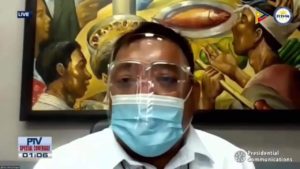MANILA, Philippines — Vice President Leni Robredo has warned that if the country does not improve its current vaccination rate, it is unlikely to attain herd immunity by the end of the year.
In her weekly radio show on Sunday, Robredo — who has been advocating comprehensive vaccine deployment plans since last year — told the Department of Health (DOH) that 256,000 people must be inoculated daily if it wants to reach its goal of vaccinating 70 million by Dec. 31.
Based on DOH data, the government has inoculated only 269,000 people in the past 17 days, for a daily average of 15,000 shots.
At present, the country has around 1 million doses from China’s Sinovac Biotech and Britain’s AstraZeneca. The country started its vaccination campaign with health workers as priority on March 1.
But since then, Robredo noted that the DOH has yet to remedy crucial bottlenecks in the rollout plan, including the lack of trained employees to administer the shots, as well as available training and rollout centers.
“Let us assess where the bottlenecks are. We only have over 1 million [vaccines] in supply but we have not utilized 50 percent 17 days in. What more when there are 70 million doses available?” she said.
“So clearly the problem isn’t the supply, but the rollout and the deployment,” Robredo said. “We sound like a broken record. We have been repeating this since last year: To prepare for the deployment so that once it arrives, we can deploy it fast.”
“We say our response is excellent but we have never really found solutions,” she continued. “Whenever we say we have a problem, they will twist [our words].”
With Metro Manila and some neighboring provinces battling a resurgence of COVID-19 virus more than a year since the start of the lockdown, the government has no choice but to go back to square one, she said.
Robredo made several suggestions, including the conduct of mass testing in areas with targeted lockdowns and the release of financial aid.
She also urged the government not to “overregulate” private companies and local governments trying to secure their own vaccines.
“We have a big problem at hand,” she said. “We have to deal with this collectively. Let us not take suggestions for granted.”


